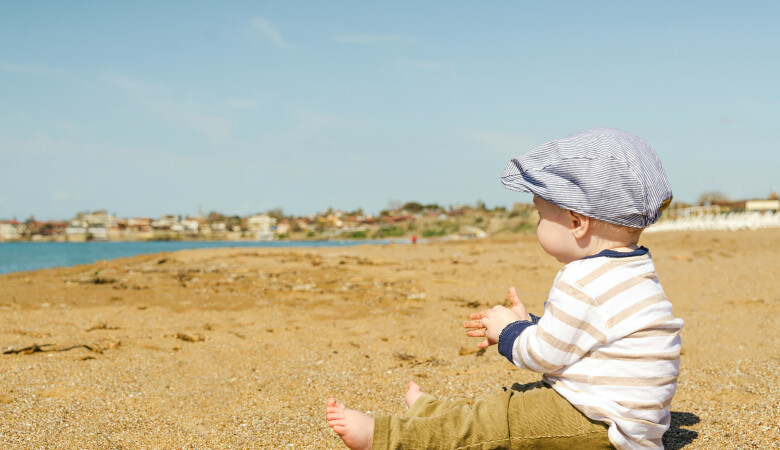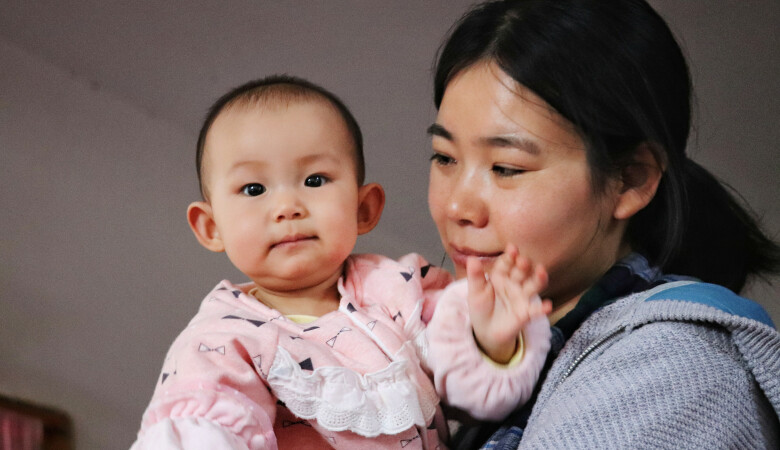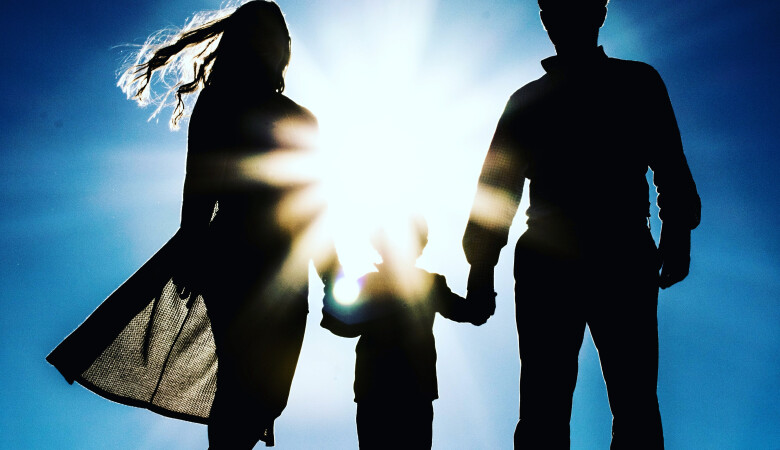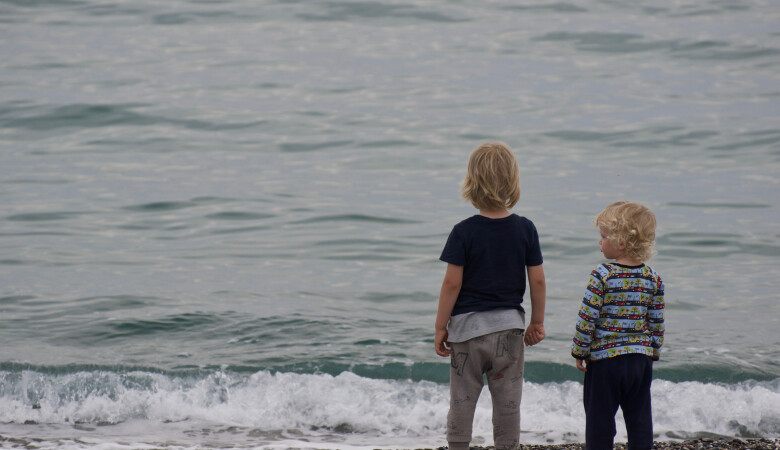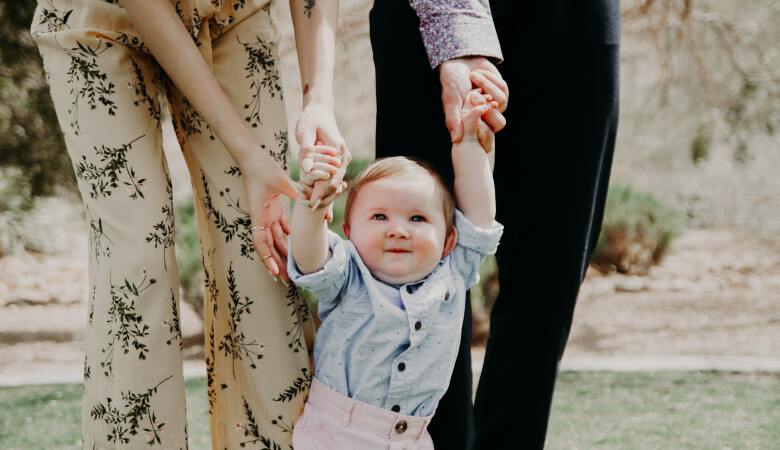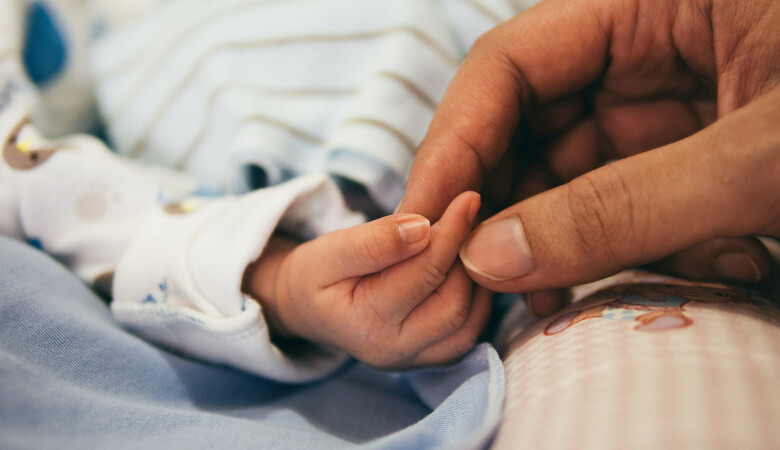God Cherishes Human Life
January 18, 2015 | Andy Davis
Psalms 139:1-18
Sanctity Of Human Life
Pastor Andy Davis preaches a verse-by-verse expository sermon on Psalm 139:1-18. The main subject of the sermon is how God cherishes individual human lives.
- SERMON TRANSCRIPT -
Well, today is Sanctity of Human Life Sunday. This is a day for us annually to celebrate the gift of God's grace in human life, the astonishing work of God in crafting human beings in his image and bestowing his constant care and love on us in ways we can scarcely imagine. To celebrate that, to celebrate just the goodness that it is to be human, and to celebrate that for one another, to be able to look at another person, another human being and just realize the significance of the fact that they are human. But it's also a day for us to grieve at the constant attack on the image of God in some very clear ways in our day and age. For us to grieve over those attacks and for us to gird up our strength and to gird up the loins of our minds to protect our minds concerning these issues. So we're going to be looking at some specific ways that the sanctity of human life is connected to current events and some issues that we face today.
Now, the sanctity of human life, the idea of the sacredness of human life, is responsible for some of the most heroic moments in human experience. This past year, I don't know when, but I saw a YouTube video, some of you have been... maybe have seen these YouTube videos, “People are Awesome,” and they do these unbelievable things like with gymnastics and frisbees and parachutes and all this stuff that just boggles the mind. But there's one that hit me a whole different way, it was under the same heading, but it showed actual footage of people doing extreme things to rescue other human beings from death. Just amazing.
And by the time it was done, I was literally weeping. I was weeping at just the poignancy of these closed-circuit camera videos of people falling in front of trains, or literally being pushed by others in front of trains, or one young woman who was suicidal and up on the fourth story of a parking garage, and at any moment ready to jump, and some guy swings down and kicks her into the garage and hugs her and holds her and just starts talking to her, trying to persuade her not to kill herself, etc., and just all of these videos, one after the other. There was one, a video of a car mostly submerged. It was a flood situation and it was just a raging torrent, there was a car just maybe eight to ten feet offshore and people just standing there helpless, and some guy dives in, swims out in the current, opens the door and pulls somebody out, and the car, soon after, they get swept away downstream. And you're seeing all of these things.
I saw one of some coastguardsmen that were just rappelling down from a helicopter on some wire, reaching down to some people on a barge and just getting them up right before it sinks. I heard in other stories, I was researching all of these, of some park rangers, I think in the Grand Tetons somewhere, and there's a severe electrical storm with wind and rain, and somebody had been already struck dead, but a number of others were trapped 60 feet down from the top on some ledge and they were desperate, and these rangers came down again, there's a helicopter involved, there were some people that rappelled down and they got everyone that was still alive back up. One person critically in need of care and they saved his life.
I. God Cherishes All Human Life
So as I looked at all of those things, those amazing stories, I realized the sacredness, the sanctity of human life is woven into the very fabric of our beings, just intrinsic, inside we see... we understand the value of human life. What do we mean by the sanctity of human life? Well, the word sanctity means sacredness, set apart unto God as holy or special or different, that's what we mean by sanctity, and the idea is that human beings are set apart from the rest of creation. Why is that? Right from the beginning in Genesis chapter 1: 26-27. Very familiar, but just listen to these verses again. "Then God said, 'Let us make man in our image, in our likeness, and let them rule over the fish of the sea and the birds of the air, over the livestock, over all the Earth, over all the creatures that move along the ground.' So God created man in His own image, in the image of God, He created him, male and female, He created them." Even though in the subsequent unfolding of redemptive history, we know that sin entered the world and had devastating, a devastating effect on humanity, still we are in the image of God, and that image is sacred and holy and set apart. The Bible supports sacredness in many, many places.
"What do we mean by the sanctity of human life? Well, the word sanctity means sacredness, set apart unto God as holy"
Now, Jesus said, for example, we are worth more, worth more than many sparrows, or of how much greater value is a man than a sheep, he makes arguments about Sabbath regulations on just the clear supremacy of human existence over animals or anything else. As a matter of fact, one verse really captures this, I think, better than any of them. In Matthew 16:26, Jesus said, "What would it profit a man to gain the whole world and forfeit his soul?" So that means our souls are worth more than all the material possession, possessions in the entire world. God cherishes human beings. And not only that, he desires an intimate relationship with each one of us, specifically because we are created in the image of God.
Now, that desire for an intimate relationship is captured in many, many places in Scripture, but in the psalm that you just heard read, that Walter read, Psalm 139, it really does a great job of capturing God's heart to desire an intimate relationship with us, and then the desire that we have once worked on by the Holy Spirit for the same with God. Now, this is not an exposition of Psalm 139, this is a topical sermon. I'm gonna be focusing on all of those topics, but I could with delight just spend the rest of the time in Psalm 139. I really would enjoy it. So let's do some of it, shall we? Let's just look at some of these verses because it's just marvelous how much the psalmist, David, captures the intimacy he feels with God.
III. The Cross of Christ Displays the Sanctity of Human Life
Look at it with me, if you would. Psalm 139:1 says, "Oh Lord, You have searched me and You know me. You know, when I sit and when I rise. You perceive my thoughts from afar." What's interesting in this Psalm is the dynamic of you and me, Oh Lord, you and me. You see it in just about every verse. You, me, you, I, etc. There's this relationship between the psalmist and God. So “Oh Lord,” he addresses the Lord, “You have searched me and You know me. You know, when I sit and when I rise. You perceive my thoughts from afar. You discern my going out and my lying down. You're familiar with all of my ways. Before a word is on my tongue, oh Lord, You know it completely.”
And so this intimate knowledge that God has with us and we could easily say, "Why would you even give me a passing thought, oh God? I mean, you sit enthroned above the circle of the earth and the people are like grasshoppers to you! Why would you even care what I do? Why would you care about my going out and my coming in? Why would you care about a single word that's on my tongue before it comes out? But God does. He has an incredible concern for us. He yearns to know us, to have a relationship with us, and he's aware of everything that we do. Verse 5 says, "You hem me in behind and before. You've laid Your hand upon me." I was talking to a dear sister earlier this week about this psalm, and she said she felt like it's like a kangaroo pouch thing. I thought that was great. I thought of a kind of a hug, but I like the kangaroo pouch a little better. You're hemmed in by God, hemmed in by his love, hemmed in by his knowledge, his intimate concern for you behind and before. And you have laid your hand on me. you put your sovereign hand, your kingly hand on me for my help and my benefit and my protection and care.
And then he says, verse 6, "Such knowledge is too wonderful for me.” It's too lofty for me to attain. I can't capture this fully. I can't fully understand this. In the next section, he talks about God's omnipresence and how it relates again to him relationally. It's not just a doctrinal concept of God's omnipresence. Look what it says, verse 7, “Where can I go from your spirit? Where can I flee from your presence? If I go up to the heavens, you are there. If I make my bed in the depths, you are there. If I rise on the wings of the dawn, if I settle on the far side of the sea, even there your hand will guide me, your right hand will hold me fast. If I say, ‘Surely the darkness will hide me and the light become night around me,’ even the darkness will not be dark to you; the night will shine like the day, for darkness is as light to you.”
So the omnipresence of God in relationship with us, you can't get away from this God. And the omniscience of God, the fact that he just completely knows everything about our lives. And Job said at one point, "Will you never turn away from me for a moment, oh watcher of men?" No, he won't. Not for a moment. Now, there are times, and you only admit this to your closest friend, you'd like God to turn his gaze away from you, and David seems to imply that even the darkness isn't hiding what I'm doing, you see everything for darkness is as day to you, oh God. You remember how Jonah tried to run away? Literally, it says from the presence of the Lord, that can't be done. He tried to go to the far side of the sea, and God is there in the center of the sea, sovereignly orchestrating every circumstance to bring him to repentance and back to a right relationship with him. And so it is with you. In Christ, God is sovereignly orchestrating the circumstances of your life when you're wandering into sin, if you're a Christian, He is sovereignly going to bring you back, probably give you a spanking on the way, but he's going to bring you back. He knows you, he loves you, he has an intimate relationship with you.
Now we get to these verses that are so familiar on Sanctity of Human Life Sunday. Let's look at them again, “For you created my innermost being, you knit me together in my mother's womb.” Here we have, in this verse, the direct activity of God in the womb of a woman, the direct activity of God, the marvelous activity of God in knitting together every human being that has ever been born. Direct activity. “I praise you,” [verse 14] “because I am fearfully and wonderfully made, your works are wonderful. I know that full well.” We can't understand ourselves, the complexity of our brains, the complexity of our organs and the systems, even the most intelligent medical researchers admit just the astonishing complexity of human life, the human body, that we're fearfully and wonderfully made, and God deserves praise for it. He deserves to be worshipped for how complex we are.
And he says in verse 15, "My frame was not hidden from you when I was in the secret place, when I was woven together in the depths of the earth. Your eyes saw my unformed body." And so here the psalmist is saying, "You were directly involved in putting together all of my vital organs and everything about me. Oh God, you did that." And then he says, "All the days ordained for me were written in your book before one of them came to be." That will trip the circuits of your brain the more you meditate on it, it's just amazing. The sovereignty of God, the providence of God, that God has such a book, and that everything about our lives, even the smallest details are written in that book before any of those days came to be. And so he says in verses 17-18, "How precious to me are your thoughts, oh God! How vast is some of them! Were I to count them, they would outnumber the grains of sand — when I awake, I am still with You." Again, that intimacy, that relationship that God desires with each one of us.
And so at the end of the Psalm, he says in verses 23-24, "Search me, oh God, and know my heart." He said at the beginning of the Psalm, "You have searched me and You know me." At the end, he says, "I want You to search me and know me. I want You to know me. I want You to have an intimate relationship with me." I frequently use this in quiet times when I know that I'm feeling distant from God and there's probably some sin issues, and I just literally, sometimes physically lay down on my bed and spread out my arms and just quote this verse, "Search me, O God, and know me, show me my sins. I don't wanna be alienated from You, I know that Christ shed his blood for me, I know that there's forgiveness and cleansing for me, but I wanna know what my sins are, so please show me what they are. See if there's any offensive way in me and lead me in the way everlasting.” Psalm 139 pictures a sovereign God, a powerful God who is directly active in human life from the beginning, from the very beginning of our conception, knitting us together and then watching over every step of the way.
Now, conversely, the reason that this is a day for grieving and a day for courage, is because Satan hates the image of God and has been warring against it from the very beginning of human history. He hates us, it says in John 8, that Jesus said, Satan is a murderer, was a murderer from the beginning, and he has nothing but murder in his heart toward the human race. And so we see some of these powerfully vital topics and current events that are addressed by this issue of the sanctity of human life. We need to stand against the devil's schemes and against this false thinking and all of that, so that we can be godly in this issue of the sacredness of human life.
Five topics are in front of us: abortion, euthanasia, racism, terrorism and slavery, and this morning I wanna show briefly just very briefly how the sanctity of human life, meditation on that, can bring us to healing and to a right way of thinking and living in each of these five. We don't have time to go into them in depth. But I'm gonna put it this way, because God cherishes human life or because human life is sacred, we, five things, first, we love the pre-born and we stand against abortion.
II. Because God Cherishes Human Life, We…
The reason we're having Sanctity of Human Life Sunday today in January is because we are commemorating in a very sad and thoughtful way, the terrible and wicked Roe vs. Wade decision 1973, January 22nd, which made abortion, opened the door for abortion to be legal in all 50 states and resulted ultimately, so far has resulted in the death of 56 million infants, 56 million. Nine times the Holocaust affected on the Jewish people in World War II. It is vital to remind ourselves every year of this ongoing scourge. It’s vital because it's easy to get numb to this, it's the law of the land, it's status quo, and we just think, "What can we do about it?" But that's the way Satan wants us to think. It's easy to give up the fight on this, which I consider to be the greatest social injustice that there has ever been in the history of our nation. Nothing else even close.
Now, we should be encouraged, we should continue to find encouragement at how God's grace is winning aspects of this battle in our culture, how hearts and minds are being persuaded on a case by case basis, how certain laws are being enacted that continue to uphold the implied personhood of the pre-born. There are various things that are happening. We should be giving thanks. Now, the fundamental issue on abortion is the personhood, the humanity of the unborn or pre-born. We need to hold that up. We believe that the pre-born baby is human from conception. That's the central issue in abortion, the humanity of the preborn. We do not have the right to take the life of an innocent person, we don't have the right to do that.
"The fundamental issue on abortion is the personhood, the humanity of the unborn or pre-born. "
And this also addresses the gnarly ethical issue of how a human being is conceived. How a human being is conceived. The worth of a human being has nothing to do with who your father or your mother was, it has nothing to do with that. It has nothing to do with how you're conceived, the circumstances of that conception, nothing whatsoever. It doesn't matter how you're conceived. A baby conceived by fornication is worth every bit as much as one conceived in a godly marriage. A baby conceived by rape or by incest is worth every bit as much as one conceived in a godly marriage. The worth is intrinsic to being human. It has nothing to do with the circumstances of the conception. That's why we stand against all abortion in any and every case, including rape and incest. It has to do with a simple, clear-headed thinking about the personhood of the unborn. We can't compromise on that because once you give in on that, why, you're gonna go right quickly to the other view. There's no way to stop it. Then it just becomes a pragmatic argument, it doesn't have to do with the personhood of the unborn.
A six-year-old who was conceived by rape or incest is clearly protectable under the laws of the state, even if he or she is an incredible burden to his mother or father. It doesn't matter at all, still protectable. This is something that God gives. Now, what scriptural proof do we have this? Well, Psalm 39 I think it would suffice, but there are others that stand very, very clearly. We see God's activity in the womb in Job 10, verses 9-12, he says, "Remember that You molded me like clay? Did you not pour me out like milk and curdle me like cheese? Clothed me with skin and flesh, and knit me together with bones and sinews. You gave me life and showed me kindness, and in Your providence, You watched over my spirit.” Clear indications of God's direct activity and putting the baby together inside the mother's womb.
Theologically, very strong argument for the personhood of every baby from conception is Psalm 51:5. There David says, "Surely I was sinful from birth, sinful from the time my mother conceived me." Look, sinfulness is intrinsic to humanity, we don't think of sinful rock, sinful trees or sinful cats or dogs, though I'm occasionally tempted in that direction, or sinful guppies, you know? But we think of sinful human beings because of the sin of Adam from the very beginning that you're human, you have Adam sin on you, and so this is intrinsic to humanity, from conception, sinful. So therefore, human from conception as well.
I think for me, the strongest scripture is in Luke 1. You remember that whole story in which Jesus is conceived in his mother's womb. Gabriel comes and announces it to Mary and she's just days into that pregnancy, and she goes and visits her cousin Elizabeth, who has herself a miracle baby, though not so miraculous, so amazing, but still amazing. In her old age, they've been barren and she is bringing John the Baptist to term. And so you have two mothers, two babies in the womb, and they have this incredible encounters. See what it says, "In those days, Mary arose and went in haste into the hill country to a town of Judah, and she entered the house of Zechariah and greeted Elizabeth. And when Elizabeth heard the greeting of Mary, the baby leapt in her womb, and Elizabeth was filled with the Holy Spirit, and she exclaimed with a loud cry, 'Blessed are you among women. And blessed is the fruit of your womb. And why is this granted to me? Listen, that the mother of my Lord should come to me? For behold, when the sound of your greeting came to my ears, the baby in my womb leaped for joy'."
So there you have double proof of the personhood of the pre-born. Pre-born John was filled with joy in the presence, really, of Jesus. That's just the way it was, through the Holy Spirit, and so he's filled with joy. Joy is part of humanity, part of personhood, he's a person. But even more significantly, Jesus just days or weeks after his conception, already Mary is called a mother, Jesus is called Lord, Elizabeth acknowledges he's the Lord, and he is just early in his development within the womb. To me, I think that's essential. There are other indications, proofs, fetal development, we could go through that I'm not gonna stop right now and do it, but just look it up. The astonishing knitting together that medical science has proven there is no line medical science can ever draw that says not human. Human from conception. And the proof is there, and by the way, one of the greatest tools in this pro-life fight are the 4-D ultrasound techniques that GE and others have developed, where you can actually see like a little movie of your baby, and it's amazing, the stats of women who are struggling with the issue, then they see that and they just know that they can't do it. And so we love raising money and giving it to crisis pregnancy centers for that kind of equipment because it's really, really helpful.
And then there's just the schizophrenia of our laws, which have laws protecting fetuses if they're desired by the mother, but then not, if they're not. It just doesn't make sense. It reminds me of what Abraham Lincoln, he said, "A house cannot forever remain divided. A house divided against itself will fall." It's schizophrenic, either it's human or it's not. And the Unborn Victims of Violence Act, which was signed into law in 2004, consistently refers to the embryo and the fetus as a child consistently. But humanity isn't ascribed by culture, it's not ascribed by a mom or a dad, it's intrinsic. And so therefore, for all of these reasons, we love the pre-born and stand against abortion.
Now, always I yearn to speak a word of comfort and grace to those who feel very guilty about this issue. Inevitably, there are people that have just astonishing feelings of guilt about this and the beauty of coming with all of that to the church, is you come to a place where the gospel can be preached, is preached plainly and clearly to sinners. And we are all sinners, all of us, and just the sexual freedoms that's going on in our land, there's just so many, they're tempted and in moments of temptation and sin, they give in, and then they find themselves in a crisis pregnancy and they're overwhelmed and they make bad decisions. Both men and women in that situation make bad decisions.
It's amazing the number of times when I used to be involved in a pro-life ministry in Brookline, you've got these men with these strong arms around, these terrified looking women, and they're just almost dragging them into the abortion clinic 'cause the men just don't wanna be involved, they don't wanna father the child that they genetically fathered, they don't wanna be a father to. And so there is... there's so much guilt to go around. All of us feel guilty about the issue in general. Am I doing enough? Am I praying enough? Should we be more involved in legislative action? Should I be down at Operation Rescue? It's just easy to feel guilty. Dear friends, the grace of God is infinite and immeasurable. And where sin abounds, grace abounds all the more. And if you feel guilty about this, it's probably 'cause you are guilty by the law of God, but the grace of God has come in Christ and he takes sin on himself, and his blood shed on the cross is sufficient for sinners of any type of sin, any pattern, so flee to Christ and find forgiveness there.
Secondly, and more briefly on these other four, we because of the sanctity of human life, because God cherishes human life, we love hope and we stand against euthanasia. Now, you know the story in 2014, probably the most famous case of euthanasia in recent memory in our country, the case of 29-year-old Brittany Maynard, who was diagnosed with an inoperable fatal brain tumor, and chose very publicly on the cover of People magazine to declare that she was gonna kill herself at a certain date, you remember all that? It got pushed back a few days, but I remember crying when I found out she had actually done it and she had killed herself. On November 1st, 2014, she took her own life with the assistance of a physician. It’s legal in Oregon because they have a death with dignity law there; she moved there to do it. Well, because of our commitment to the sacredness of human life, we stand against euthanasia and especially against all quality-of-life arguments that make this kind of thing doable ethically in their minds. You see, that's the way she was arguing, quality of life. Same thing, by the way, works at the beginning with selective abortions where Down’s Syndrome and other folks are weeded out because of the quality-of-life argument.
"Because of our commitment to the sacredness of human life, we stand against euthanasia and especially against all quality-of-life arguments that make this kind of thing doable ethically in their minds."
So it is at the end of life with people who have inoperable tumors, who are maybe even Alzheimer's, dementia, things like that, the euthanasia movement is strong, and we as Christians need to stand against it and say, human life is sacred, right to the end. The sanctity of human life is above any life circumstance. Jesus said this in Matthew 6:25, he said, "Therefore, I tell you, do not worry about your life, what you'll eat or drink or about your body, what you'll wear." Listen to this, "Is not life more than food and the body more than clothing?" NIV puts more important, but let's just keep it simple, it's more. It's a higher ethic, it's a higher thing. And so therefore, your existence as a human being is a greater issue than the circumstance in your life, including your clothing and your food, so we reject all quality-of-life arguments. Also we know that suffering and eventually even death can give us as Christians an opportunity to put the gospel on display in amazing ways. I've seen this done. I've seen brothers and sisters who have suffered greatly in the final months of their lives, shining with the hope that non-Christians don't have. Euthanasia is a hopeless act. But we want the hope of the resurrection to shine in the midst of suffering. We yearn for that.
Euthanasia is also an arrogant act because we take on ourselves a role that we do not have. We don't have the right to end life. God gives it, he's the only one that can take it back. As Job said, "The Lord gave and the Lord has taken away, may the name of the Lord be praised." And in Deuteronomy 32:39, God says this, "See now that I am, I, even I am He, and there is no God beside me. I kill and I make alive, I wound and I heal, and there is no one who can deliver out of my hand."
So when we take on ourselves the decisions to end life and all that, physicians do that, individuals, we are taking God's place and that should not be done. John Piper, writing about Brittany Maynard said this, "Brittany Maynard sweetened her last days with trips to the Alaskan glaciers, and the Kenai Fjords, and the Grand Canyon. In one sense this is totally understandable. We were made for beauty, but in another sense, it is puzzling. For there's one thing that's standing on the edge of the Grand Canyon does not do for you, it does not enhance your sense of autonomy. It makes you feel small and vulnerable in the presence of such greatness and majesty, and that is a good thing, for we are small and we are fragile and we are not autonomous, we were never meant to be. Beauty, yes. Joy, yes. Greatness, yes, but all of it outside of us filling us, it's because of God, that human beings are sacred, because of him."
Thirdly, because human life is sacred, we love all people and stand against racism. Tomorrow is Martin Luther King Jr. Day, and we rightly celebrate the courage and vision of one of the great leaders in American History. The entire platform of his mission against institutional racism and Jim Crow laws and segregation was the essential equality of all races in the eyes of God. It was all founded on sanctity-of-human-life arguments and convictions. All people are created in the image of God and sacred to him. Racism is an arrogant denial of that basic biblical fact. We are all descended from one man. Racism should seem preposterous, the more you meditate on that. It doesn't make any sense. It says in Acts 17:26, "From one man, he made every nation of men that they should inhabit the whole Earth." Secondly, all Christians are atoned for the same way by the blood of the same Savior. We all stand on level ground before the cross, we're all equally sinners, and we're all redeemed by faith in the blood of Christ. As it says in Ephesians 2, "For he himself is our peace who has made the two one and has destroyed the barrier, the dividing wall of hostility, by abolishing in His flesh the law, with its commandments and regulations. His purpose was to create in himself one new man out of the two, thus making peace. And in his body, to reconcile both of them to God through the cross, by which He put to death their hostility.”
So the cross of Christ puts to death racism, puts to death the hostility. Now, 2014 saw racism as one of the hottest issues of our time. Several famous incidents in our country in which African-American people had confrontations with police officers resulted in weeks and weeks of discussion of racism that continues to this present time. Now, many of our African-American brothers and sisters relate real incidents in which they were singled out unjustly for harsh treatment by police and others in society for no apparent reason other than the color of their skin. Whether or not that happened in this case or that case, or the other case is not really ultimately important. It is helpful when cases are clear and then justice can be brought down, that is true. But even in the absence of this, what do you do with all the testimonies of brothers and sisters that say what happened to them or their father or their uncle or their brother or friend? We must stand against all such racism, all of it.
IV. How Can We Live Out the Sanctity of Human Life
Now again, my vision for this urban church comes from John 17:23, Jesus’ prayer about a unity pattern after the Trinity. As the Father and the Son are one, he says, “Father,” praying to the Father, “I in them in the church, and they in me, may they be brought to complete unity to let the world know that you sent me and have loved them, even as you love me.” So the process of becoming more and more united, killing racism, killing all the other things, and becoming just stunningly united in a way that makes Durham say, "What's going on at FBC, what's happening there? I wanna be a part of that," is good for the gospel, and I wanna see that happen here.
Fourthly, because of the sacredness of human life, we love peace and stand against terrorism. Again, 2014 saw terrible acts of violence by terrorist groups against innocent people. We think about the rise of ISIS in Syria and Middle East and beheadings of children, and they show how terribly hardened hearts these vicious people have and their clear willingness to sacrifice human lives to achieve their religious and political agenda. Even very recently, attacks in Paris by two masked gunman resulted in the deaths of 17 people and that group was coming from Al-Qaeda. Many of these terrorist attacks come from those that have a zeal, the desire to show their zeal for Islam and for Muhammad. The sanctity of human life holds that such attacks are immoral and repugnant to God.
Christianity, and I mean, true Christianity, not the Christianity of the Crusades. That's not true. I could talk about that for a long time. I don't know what the Crusaders were thinking and how they got those weird ideas, but true Christianity has always advanced not by killing, but by dying. Not by killing, but by dying. That's how it advances. And Jesus set the pattern, and he said very plainly in John 12:24, "Truly, truly, I say to you, unless a kernel of wheat falls into the ground and dies, it remains by itself a single seed, but if it dies, it brings forth much fruit." And so as Tertullian put it, "The blood of martyrs is seed for the church." I believe that brothers and sisters are gonna go to the 10/40 window to Muslim countries, and they're gonna be willing to shed their blood, have their blood be shed, so that elect can be brought from Muslim nations into a sweet faith in Christ. That's how Christianity advances. And so we stand against terrorism.
"True Christianity has always advanced not by killing, but by dying. "
And fifthly, because human life is sacred, we love freedom and stand against slavery. Now, you may think, "What is this? Isn't slavery a thing of the past?" No, it decidedly is not. It is not. Human trafficking is a form of modern slavery, where people profit from the control and exploitation of others, traffickers use force and fraud and coercion and other means to draw people into generally sex issues or labor issues against their will, and they end up being trapped in those patterns.
The International Labor Organization estimates that there are 21 million victims of human trafficking globally, including 5.5 million children, 55% of all of them are women and girls. It's 150 billion dollar industry worldwide, and it's going on in our nation, too. David Platt, President of the IMB, talked about experience that he had going in villages in Nepal, and he was able to find out what the traffickers do there. They come in and they promise these poor families money if they'll give up their nine-year-old girls and they give them more money they've ever seen in their lives and they say, "We're gonna provide good jobs for them, we're gonna provide housing and all that, we'll be sending you checks," and all that sort of stuff, and then they're trapped and they can't get out. One of our church members, Amanda Halbrooks, has been laboring in East Asia for several years now on this very issue, and very soon you'll get a chance when she comes back to talk to her about her efforts in freeing young girls, young women from sex-trafficking. So we stand against these things because we love freedom.
Now, the cross of Jesus Christ displays the highest conviction that God has in the sanctity of human life. "God so loved the world that He gave His only begotten Son, that whoever believes in Him should not perish but have eternal life." I believe that that in general is God's stance of love for the human race, in general, displayed in his electing love and saving His chosen people from every tribe, language, people, and nation. But he has a general stance of love toward the human race. It says in Hebrews 2, "For surely it's not angels he helps, but Abraham's descendants." They have flesh and blood. He loves human beings and sent his son to die, Jesus Christ came and his death on the cross, he showed the value, the worth, the esteem that God has for human beings in that he died in our place, and he cherishes human life and that he raised Jesus from the dead as human. So he's still human. He said, because I live, you also will live.
Well, friends, how can we live out a conviction to the sanctity of human life? Well, first, just meditate on what I just said, embrace the cross of Christ by faith. Find your worth and your value in this. You’re created in the image of God and redeemed by the blood of Christ. Not in what you achieve, not on what your body can do on the athletic field, or what your mind can do as shown in grades or professionally in your career. No, your worth and value comes from this, created in the image of God, redeemed by the blood of Christ. But I need to ask you, have you been redeemed by the blood of Christ? Have you? Have you found in Christ a savior? Have you found forgiveness through faith in Christ? Ask yourself that, do I know? We sang earlier, how do I know that I've been forgiven? How do I know I'm going to Heaven?
And next, we also need to embrace other people's sanctity, embrace that every person you will see this week is in some sense sacred and that they're human. C.S. Lewis in his sermon, “Weight of Glory”, said this, “There are no ordinary people.” Think about that. You've never talked to a mere mortal. Nations, cultures, arts, civilization, these are mortal. Their life is to ours like the life of a gnat, but it is immortals whom we joke with, work with, marry, snub and exploit. Immortal as in immortal horrors or everlasting splendor. Every person you meet is either gonna spend eternity in hell or heaven.
We have the gospel, let's be bold and share the gospel with them. Let's treat them with dignity. Hold doors for people, hold doors for people. Look around you and see needs and meet them. Speak respectfully to people, don't be rude, acknowledge that people are human beings and embrace these five issues. There's so many things I could say about it. Out in the North Tower Resource Center, there are books specific on pro-life. The price is $5 each, it's a great price, so grab some resources that you can get there and close with me, if you would, in prayer.
Father, we thank you for the opportunity we've had to look at these issues. Father, we acknowledge that we're sinners, we may not sin exactly in all these ways, but Lord, we all sin in some ways, none of us is exempt, and so we need your forgiveness and your mercy. And I pray that you would speak a word of grace to each of the people here. I thank you, oh Lord, for the sacredness of human life and the chance we have to proclaim it and celebrate it today, and especially, we thank you for Jesus who died in our place and shed his blood that we might be forgiven. In His name, we pray. Amen.


